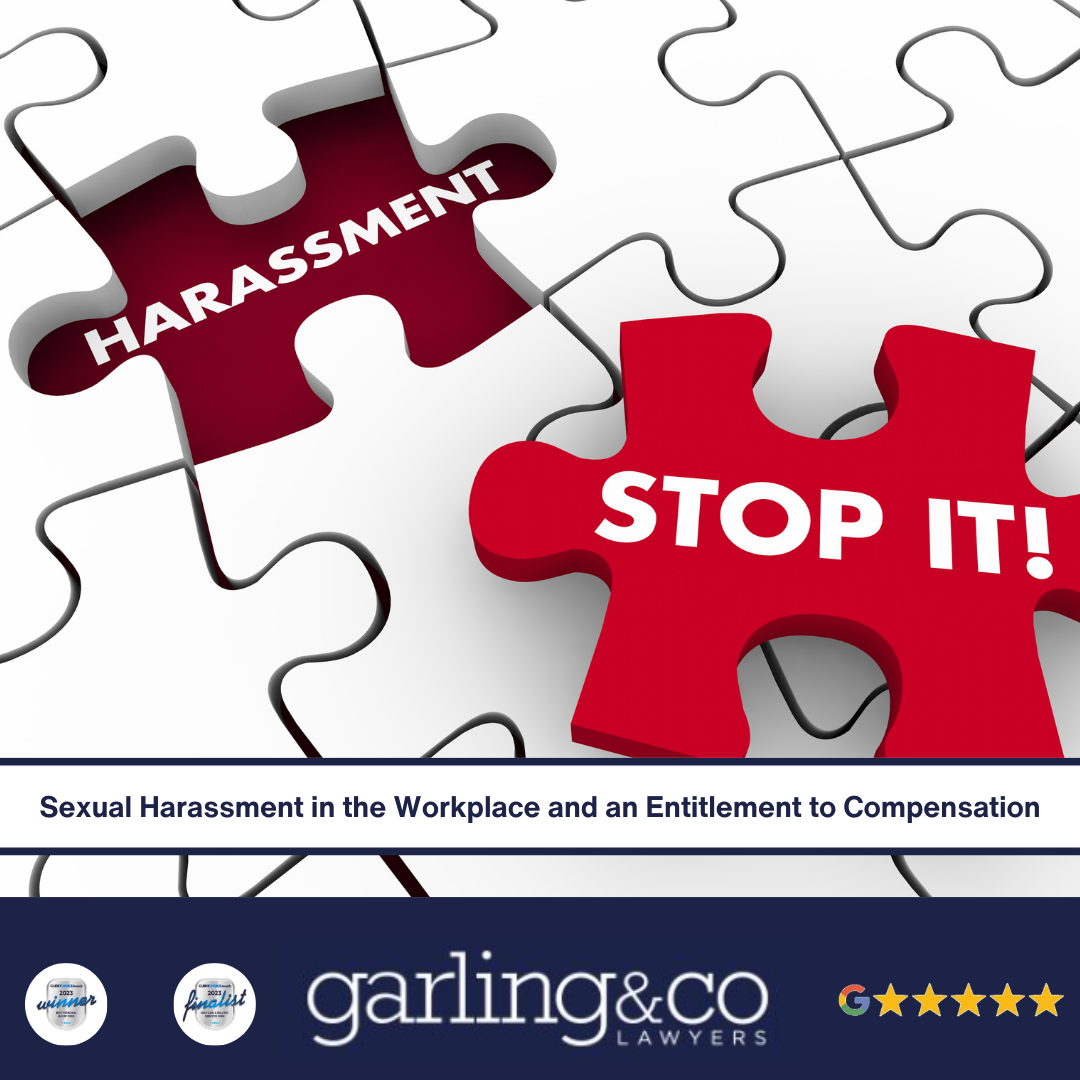
79% of all Australian’s had been sexually harassed at some point in their lives.
What is Sexual Harassment?
Section 28A (1) of the Sex Discrimination Act (CTH) 1984 (SDA) defines sexual harassment behaviour as:
(a) a person who makes an unwelcome sexual advance, or an unwelcome request for sexual favours, to the person harassed; or
(b) engages in other unwelcome conduct of a sexual nature in relation to the person harassed;
In circumstances in which a reasonable person would have anticipated the possibility that the person harassed would be offended, humiliated or intimidated.
Sexual Harassment in the workplace
Section 28B of the SDA makes it unlawful for an employer to sexually harass an employee or an employee to sexually harass a fellow employee.
Sexual harassment in employment by either fellow employees or the boss is considered to be unlawful discrimination.
Section 106 of the SDA imposes vicarious liability on employers for sexual harassment by one employee towards another. The employer is liable if they fail to take all reasonable steps to prevent the employee form doing the sexual harassment.
This means the employer could be held responsible for any remedy the employee may seek as a result of the sexual harassment by another employee.
Similar provisions are found in the Anti-Discrimination Act (NSW) 1977.
If you have sustained an injury either physical or psychological you can make a claim for workers compensation benefits under the NSW Workers Compensation Act 1987.
How to report sexual harassment in the workplace
A sexual harassment claim needs to be reported to the human resources department or a manager at work. You should keep any emails or any other documents relating to the assault/harassment and record as much information as you can about any verbal comments or other actions being taken to sexually harass you.
Your employer should take your complaints seriously and remove you from the presence of the person who is sexually harassing you and investigate the allegations and do their best to stop the sexual harassment.
Unfortunately, once a complaint has been made, employers often do nothing or often do very little to prevent further sexual harassment from occurring.
If the person who is sexually harassing you is the boss and there is no one to report the conduct to, you can make a complaint to the Australian Human Rights Commission. You need to make the complaint within 12 months.
How to claim compensation for sexual harassment in the workplace
To claim monetary compensation for sexual harassment, a complaint of sexual harassment in the workplace must be made to the Australian Human Rights Commission (AHRC) within 12 months of the acts occurring.
The AHRC has the power to investigate and conciliate any such complaints and decide as to whether the sexual harassment was unlawful and also arrange for the parties to attend mediation to see if agreement can be reached.
If no agreement can be reached, then proceedings may be commenced seeking monetary compensation in the Federal Court. This must occur within 60 days of the decision by the AHRC.
Section 46PO of the AHRC Act allows the Federal Court to award damages for unlawful discrimination which includes sexual harassment. The section reads as follows: –
“if the court concerned is satisfied that there has been unlawful discrimination by any respondent, the court may make such orders (including a declaration of rights) as it thinks fit, including any of the following orders or any order to a similar effect…..
(d)an order requiring a respondent to pay to applicant damage by way of compensation for any loss or damage suffered because of the conduct of the respondent.”
Recent cases that involve sexual harassment within the workplace
There have been two recent cases decided by the Federal Court, one (Richardson v Oracle Corporation Pty Limited) in which the court awarded the person who was sexually harassed $100,000.00 for the value of loss of enjoyment of life and the mental illness or distress caused by the conduct as well as $30,000.00 in loss of income.
Recently in the case of Katherine Hill v Owen Hughes t/as Beasley & Hughes Lawyers, the court awarded $170,000.00 to a female lawyer who had been sexually harassed by her boss. $120,000.00 was awarded for damages suffered because of the harassing conduct and $50,000.00 was awarded for aggravated damages. Aggravated damages are essentially awarded for the failure of the employer to stop or prevent the sexual harassment from occurring.
Summary
These two recent cases make it clear that the Federal Court of Australia will award substantial damages of compensation to anyone sexually harassed in the course of their employment should the employer fail to take all reasonable steps to prevent the sexual harassment from continuing once it is reported. If it is the owner of the business that is sexually harassing, you then the employer has clearly failed to take any steps to stop the harassment and will be found liable to pay compensation. It is the employer who pays the compensation.
If you would like to discuss any potential claim you may have please contact our office at (02) 8329 9500 or complete a free case assessment here.












